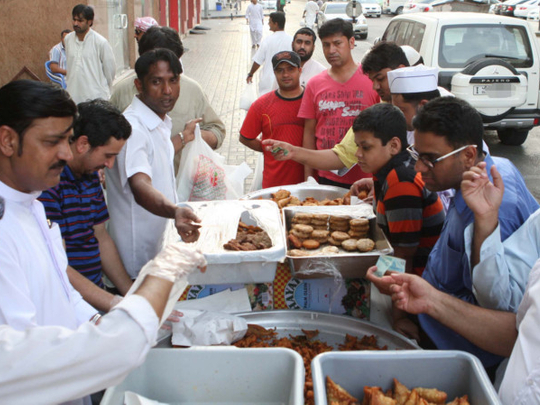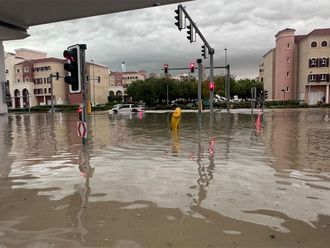
Dubai: More than 500 food establishments have failed to acquire a municipal permit before displaying and selling their food outside the premises during the month of Ramadan, in addition to not meeting the standard level of hygiene.
Sultan Al Taher, head of food inspection at Dubai Municipality, told Gulf News yesterday that the majority of food establishments that flouted the rules were located in Al Muhaisnah, Al Qusais and areas home to workers’ accommodation.
The new set of instructions, which are only applicable during the month of Ramadan, have been issued to all restaurants, cafeterias, sweet shops, bakeries and catering companies operating in Dubai.
“There are thousands of food establishments but not all of them want to display their food outdoors. Out of all the shops that have chosen to sell their food outside their premises, 30 per cent, which is about 500 shops, have either failed to apply for a permit or sold their food in unhygienic conditions,” said Al Taher, who pointed out that the shops have been prohibited to sell food outdoors until they meet the municipality’s health and safety requirements.
According to the municipality’s instructions, all food items should be displayed in closed food cabinets, which should be located in a suitable place adequately protected from external contamination. Food establishments have also been prohibited from preparing, cooking and reheating foods outside the premises.
Al Taher pointed out that his department not only inspects commercial areas but residential ones as well, and that a team of municipality inspectors also carry out inspections on Ramadan tents that have been set up for iftar.
“Only 10 per cent of these temporary tents have failed to properly implement the municipality’s safety and hygiene requirements. We are also cooperating with the Department of Islamic Affairs to ensure that all iftar programmes offered to the public do not pose any hazard, particularly related to food safety,” he added.












